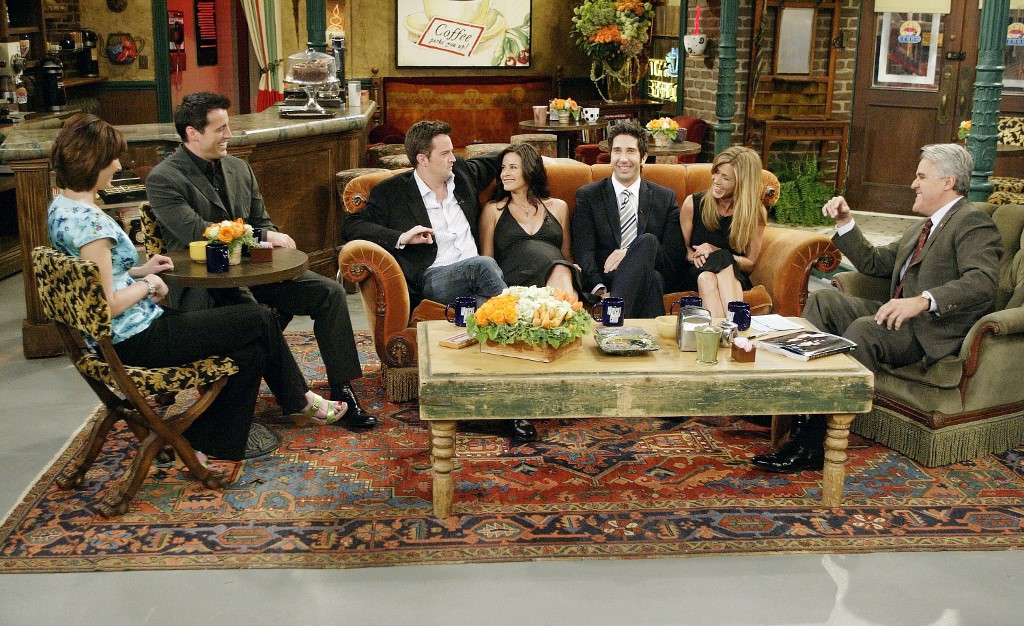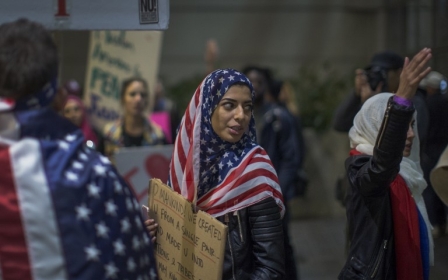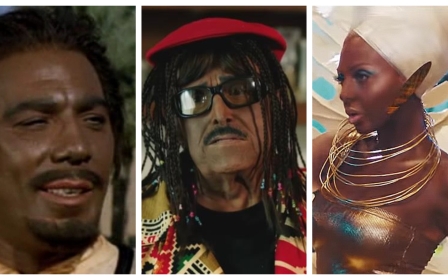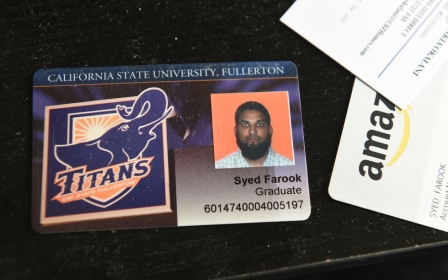Not our Friends: The subtle imperialism of the hit sitcom
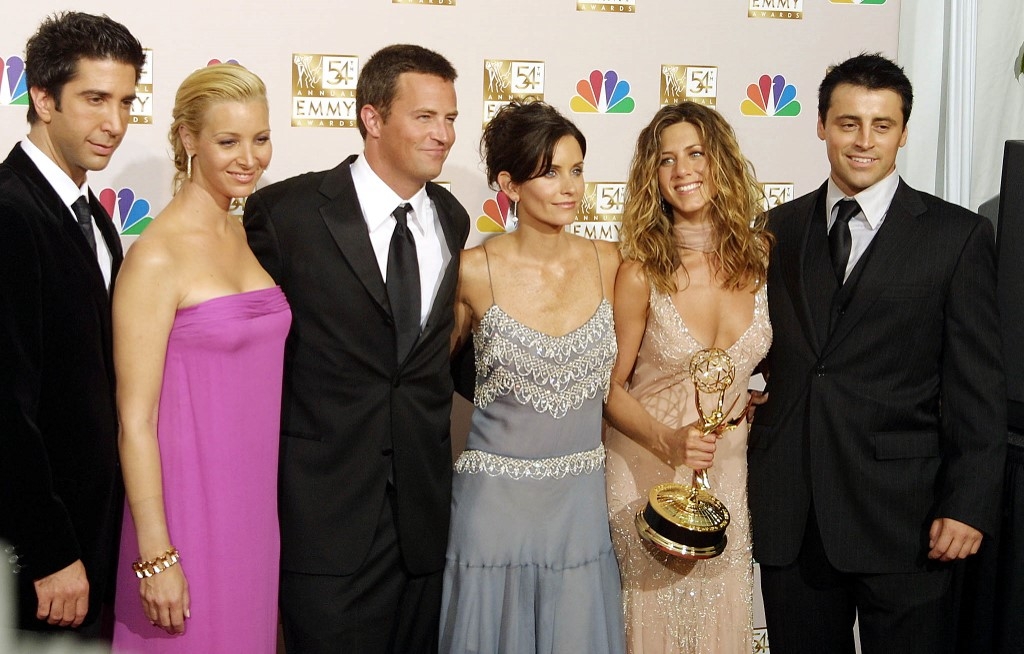
The long awaited reunion of the cast of Friends aired on HBO Max last Thursday. The documentary style talk show opened with displays of nostalgia and was punctuated by attempts to create a sense of community that extends beyond the Friends cast to its viewers the world over.
The emulation of the show’s characters and their language by young people worldwide has been a familiar phenomenon since the late 1990s
Indeed the emulation of the show’s characters and their language by young people worldwide has been a familiar phenomenon since the late 1990s. Fiercely laying claim to this universality, the reunion included recorded testimonies from visibly multi-ethnic members of a global audience, reminiscing about how the show boosted their morale, provided them with solace when no-one else could, gave them an empowering model to emulate and "saved more lives".
It is a testament to the show’s success, limited neither to the society and culture that produced it, nor to the generation that grew up watching it. It is also a testament to the role of television in universalising the culture of mainstream, white, urban America - and an index for the ideological role these shows play within the cultural apparatus of the US empire.
American television shows have always been part of the cultural appeal of the American empire. In the 1980s, social theorist Jean Baudrillard, who believed the material forces of US imperialism were declining, noted that “America has retained power, both political and cultural… as a special effect” through representational phenomena such as the rise of the dollar, “the fabulous apotheosis of New York, or even - and why not? - the world-wide success of [the television show] Dallas”.
'New world order'
Stay informed with MEE's newsletters
Sign up to get the latest alerts, insights and analysis, starting with Turkey Unpacked
Since the 1990s, these “special effects” have taken various turns. The more successful and wide-reaching Friends continued where shows such as Dallas left off, globally promoting “the fabulous apotheosis of New York”, where the events of the show were set. It turned a banal, yet idealised version of New York and American society into something globally recognisable, familiar and affable, at a moment of US triumphalism that paraded the American model as the only possible ideal.
It is useful to reflect here on how sexism and racism produce the annoying woman and the impossible Arab as the two limits of comfortable white existence
The proliferation of information technology, satellite television channels and streaming platforms allowed greater strides to be taken by the metaphorical troops of US cultural imperialism. Those strides were taken in-step with the actual strides of the military troops, and grounded in the same infrastructure.
The global age of the American sitcom coincided with the resurgence of US military interventions and a new age of American imperialism, which former President George HW Bush dubbed, amid the Gulf War in 1991, the “new world order”. Regardless of the intentions of the creators of Friends, its promotion of the American model came at the same time as US military interventions and US-sponsored regime changes in Eastern Europe, the Balkans, and especially the Middle East.
Indeed, the popularity of Friends among Arab audiences coincided with the build up to and the eruption of US wars in Afghanistan and Iraq, and fit neatly with the cultural and propaganda campaigns that sought to pave the road for American troops.
Friends was a low-commitment show, requiring no intellectual effort and minimal emotional engagement. But this did not translate into a lack of investment; rather, this lightness allowed the show’s events, themes and world to pervade the lives of viewers. Add to this an endorphin-inducing setting about a supportive, closely-knit circle of friends who were “there for you” even through the worst of times, and the formula for addictive familiarity is complete.
Yet, the fact remains that as far as an Arab audience is concerned, these are not our friends. Examining the position of Arabs in the world of the show reveals a relationship of hostility and negation, rather than familiarity and friendship. Chandler’s first romantic interest is, somewhat tellingly, an adventurous Italian woman who volunteered with the Israeli army.
Friends has been repeatedly criticised for its lack of people of colour, especially as the events of the show were set in the culturally and ethnically diverse city of New York, near the vibrant West Village. More problematic than the lack of diverse representation, however, was how African Americans were persistently presented as an encroaching threat to the show’s white characters.
Diversity as encroachment
The first Black character on Friends appeared in the fourth season: a noisy neighbour who woke Rachel up by loudly singing jazz early in the morning. It wasn’t until season seven that the second Black character appeared: another noisy neighbour who knocked on Monica’s door at 4am asking for candy with assertion and entitlement, before making an inappropriate pass at her.
As the show became more diverse, we encountered Charlie, an African American palaeontology professor who dates Joey, then almost cheats on him with Ross, then dates Ross, and finally cheats on him with her Nobel laureate ex, to whom she returns, hurting both Joey and especially Ross - the latter representing the sensitive and vulnerable archetype. It seems Black, virile femininity can only hurt innocent white men.
This was not the 1960s. Racial integration had already been underway for decades in places such as New York. And yet, diversity was still perceived as an encroachment on the inner world of white characters - an aggressive imposition on their neighbourhoods and a menace to their private and sexual lives.
If African Americans are relegated to a margin that threateningly encroaches on the white characters, Arabs are presented as the impossible “other”. Yemen in the show appears as the last place to which a white man would consider going, and to which Chandler is forced to go to escape from his girlfriend, Janice. It is useful to reflect here on how sexism and racism produce the annoying woman and the impossible Arab as the two limits of comfortable white existence.
The other time Yemen is mentioned is in the dialogue between Chandler and his Italian Israeli-army lover, who recounts a story from her military service that starts with bullets being fired at her and ends at the Yemeni border. In contrast to the comfortable white existence epitomised by Chandler, whose wildest adventure was riding the subway all the way to Brooklyn, the Israeli army becomes the branch of whiteness that can venture into the “exotic”.
Identifying with empire
On a more banal level, the Arab remains negated, as an aggressive and incompetent Lebanese restaurant owner fails to provide authentic Italian food. To Monica’s query: “You own an Italian restaurant and you don’t know food? Where are you from, anyway?” The man responds “Lebanon”, drawing laughs from the audience - as if operating on the assumption that Arab Mediterranean cuisine doesn’t exist, or cannot match up to its European counterpart.
None of this is to deny the phenomenal success of the show. It is perhaps thus far evident that the author of this essay has survived (and admittedly enjoyed) at least several viewings of it. My aim, however, is to acknowledge what is being done to us while we are being entertained; the ideological work that lurks behind our enjoyment of the show, and how we are surreptitiously drawn into identifying with, glamourising and normalising the image and model of the empire that wages colonial, sometimes near-genocidal, wars against our people, and in the process marginalising and negating ourselves. In the age of imperialism, no entertainment is apolitical.
The views expressed in this article belong to the author and do not necessarily reflect the editorial policy of Middle East Eye.
This article is available in French on Middle East Eye French edition.
Middle East Eye delivers independent and unrivalled coverage and analysis of the Middle East, North Africa and beyond. To learn more about republishing this content and the associated fees, please fill out this form. More about MEE can be found here.



